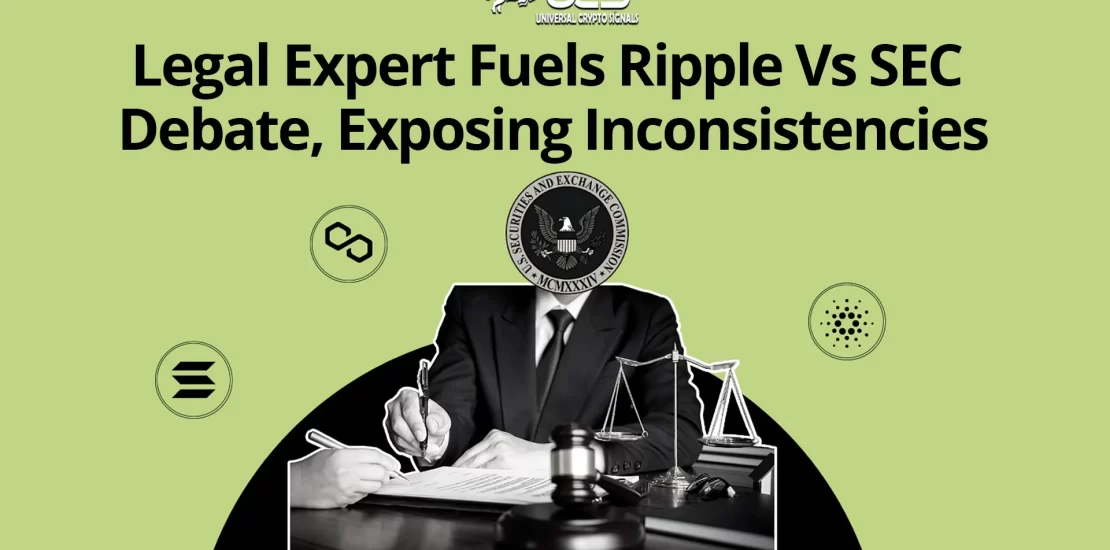- July 19, 2023
- Posted by: Subham Seth
- Category: News

Overview of Ripple vs. SEC Case
The Ripple vs. SEC case centers around the SEC’s allegations that Ripple and its executives conducted unregistered security offerings through the sale of XRP tokens. The SEC categorizes XRP as a security and subjects it to the same rules as conventional securities
However, Ripple asserts that XRP is a form of digital currency and should be treated accordingly. This legal dispute with Ripple sets a crucial precedent for cryptocurrency regulation, impacting the broader market’s future regulations.
Understanding Ripple’s On-Demand Liquidity (ODL)
Ripple’s On-Demand Liquidity (ODL) service is a solution that utilizes XRP as a bridge currency to facilitate fast and low-cost cross-border transactions.
ODL helps financial institutions cut pre-funding in destination currencies, reducing liquidity costs and settlement times.
The ODL service has gained traction among various financial institutions worldwide, offering an efficient alternative to traditional remittance systems.
Legal Expert Opinion: Debating the Regulatory Status of XRP
Legal experts have differing opinions regarding the regulatory status of XRP. However, Some argue that XRP should be classified as a security due to its initial distribution and the involvement of Ripple’s executives in promoting its value.
Others contend that XRP’s decentralized nature and utility as a medium of exchange differentiate it from traditional securities. These differing views have sparked heated debates within the legal community and have made the Ripple vs SEC case all the more complex.
The Ripple ODL Debate: Inconsistencies Exposed
The Ripple ODL debate revolves around the SEC’s assertion that Ripple’s sales of XRP constitute an unregistered securities offering. However, opponents have pointed out anomalies in the SEC’s approach to cryptocurrency regulation.
Despite their initial coin offers (ICOs), the SEC’s designation of Bitcoin and Ethereum as non-securities raises concerns regarding the SEC’s approach to XRP.
Critics claim that the SEC’s case against Ripple is undermined by these inconsistencies, highlighting the need for explicit laws in the cryptocurrency field.
Implications for the Cryptocurrency Industry
Accordingly ,The outcome of the Ripple v. SEC case will have far-reaching consequences for the cryptocurrency market as a whole.
If the court rules in favor of the SEC and declares XRP to be a security, it might create a precedent for other digital assets, imposing onerous regulatory requirements.
A judgment in Ripple’s favor, on the other hand, might add to the existing understanding of how cryptocurrencies are governed and serve as a blueprint for future ventures.
The case has ramifications beyond Ripple since it has prompted regulators to reconsider their stance on cryptocurrencies and blockchain technology.
Ripple’s Response and Ongoing Developments
Ripple has repeatedly maintained that XRP is a digital currency, not a security, throughout the judicial struggle. The corporation has emphasized its willingness to collaborate with regulators and has put in place steps to improve transparency and compliance.
Furthermore, Ripple has expanded its alliances and improved its technology in order to revolutionize cross-border payments and make them more accessible and efficient.
Future Outlook for Ripple and XRP
The future of Ripple and XRP remains uncertain as the legal proceedings unfold. Accordingly,The outcome of the Ripple vs SEC case will likely shape the path forward for both Ripple and the cryptocurrency industry.
The case has sparked debates on regulatory clarity, investor protection, and digital asset development, regardless of the court’s judgment. As the industry evolves and regulatory frameworks form, Ripple and XRP will continue to play a crucial role in defining the future of finance.
Legal Expert Raises Concerns with the Judgment
Legal expert Bill Morgan sparks debate on a judge’s ruling impacting Ripple’s On-Demand Liquidity (ODL). Morgan’s concerns have attracted attention from industry insiders and enthusiasts, highlighting a significant inconsistency in the judge’s perspective.
Inconsistency Highlighted by Morgan
Morgan expressed his concerns through a tweet, where he pointed out an inconsistency in the judge’s viewpoint. Morgan argued that the judge misunderstood institutional sales, as ODL customers use XRP for payments, not for profit through holding.
Ripple’s Response to the Situation
Ripple’s CTO, David Schwartz, responded to Morgan’s concerns, stating that Ripple was still grappling with the complexities of the situation. Schwartz emphasized that Ripple’s inability to conduct ODL-related sales in the U.S. did not significantly harm its operations. Ripple may continue U.S. ODL activities if XRP isn’t directly sourced from them.
Ripple’s Legal Victory and Market Impact
The ongoing discussion takes place in the context of Ripple Labs’ recent legal victory against the SEC. The court’s July 13 ruling favored Ripple, stating that the sale of XRP on exchanges didn’t constitute sales of investment contracts.
This landmark decision propelled XRP to become the fourth-largest cryptocurrency by market capitalization. Before, experiencing a sudden surge immediately following the ruling.
Divided Decision and Uncertainty
However, Judge Analisa Torres delivered a divided decision in the case. XRP ruled unlawful for institutional buyers but deemed lawful on exchanges and for employee distribution.
This judgment creates uncertainty within the cryptocurrency markets. Congressional clarity is deemed essential to navigate the crypto space effectively.
Add a comment
You must be logged in to post a comment.



